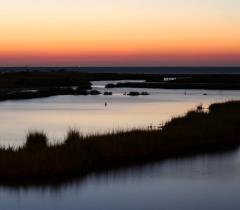Congress (primarily the House of Representatives) has begun passing annual budget bills to fund federal agencies and programs for Fiscal Year 2020. What can we learn about its priorities by looking at these budget bills? The House is generally prioritizing conservation and protecting our natural resources.
While it’s too early to declare victory, these first steps (with a few notable exceptions) are encouraging when it comes to the League’s priorities. Here’s a quick breakdown of some of the important programs – and proposed funding – that have come out of the House of Representatives for FY 2020.
Land and Water Conservation Fund: $524 million. The League is pleased to see the House increase funding for LWCF to $524 million. The program received $438 million in FY 2019, and the president’s FY 2020 proposed budget requested only $33 million! Despite this progress, there is much more to be done. As stated in the previous story, we strongly believe that Congress must fund LWCF at its authorized $900 million annual level – which would be a win for taxpayers, outdoor enthusiasts, and fish and wildlife.
Great Lakes Restoration Initiative: $305 million. The Great Lakes Restoration Initiative (GLRI) is the Environmental Protection Agency’s primary program devoted to conserving and restoring the Great Lakes. The program leverages matching funds from states and other partners to restore wetlands, protect drinking water sources, and fight aquatic invasive species such as Asian carp. The League is pleased that the House allocated $305 million for GLRI – a record investment.

Chesapeake Bay Program: $78 million. Vital to improving water quality in the nation’s largest estuary and throughout the heavily populated mid-Atlantic region, the Chesapeake Bay Program funds partners (including the League) to drive solutions to water quality problems, including excess runoff from farms and urban development. The House increased the appropriation for the Chesapeake Bay Program by $5 million for FY 2020. (The president’s budget request only included $7.3 million for this program in FY 2020.)
National Wildlife Refuge System: $514 million. Operations and maintenance that are vital for wildlife conservation and public safety on America’s wildlife refuges have been chronically underfunded over the past decade. The House appropriation of $514 million for the refuge system is a welcome step toward adequately funding our only public lands dedicated to wildlife conservation.
State and Tribal Wildlife Action Plans: $71 million. State wildlife action plans are roadmaps that state and tribal wildlife resource management agencies have laid out to keep wildlife from becoming threatened or endangered. Proactively managing wildlife species is not only the right thing to do, it’s cheaper and more efficient to prevent species losses than the “all hands on deck” approach that is mandated once a species becomes endangered. We’re pleased that the House increased the funding for FY 2020 by $6 million to $71 million.
_credit-paul-lepisto.tmb-small.jpg?Culture=en&sfvrsn=a855a50d_1)
Upper Mississippi River Restoration: $33.2 million. The Upper Mississippi is one of the most complex ecosystems on Earth, yet it has been heavily degraded by alterations for flood control and navigation. The League is pleased that the House provided over $33 million for the Upper Mississippi Restoration Program so restoration of critical fish and wild- life habitat can continue.
Missouri River Fish and Wildlife Recovery: $17.8 million. The League is disappointed that the House appropriated less than $18 million for this effort in FY 2020 when the Army Corps of Engineers has said that it needs as much as $45 million annually to implement the Missouri River Recovery Plan. The League will work with our partners in the region to put pressure on Congress, especially the Senate, to increase the investment in conservation for this important resource.
South Florida Ecosystem Restoration: $63.25 million. The House appropriation for this ambitious plan to restore the Everglades and protect the drinking water sources for 8 million Americans falls woefully short of the $200 million needed to adequately fund work on the ground. The League joins other members of the Everglades Coalition in calling on Congress, as the president has done, to fully invest in the South Florida Ecosystem Restoration plan before finalizing the FY 2020 budget.